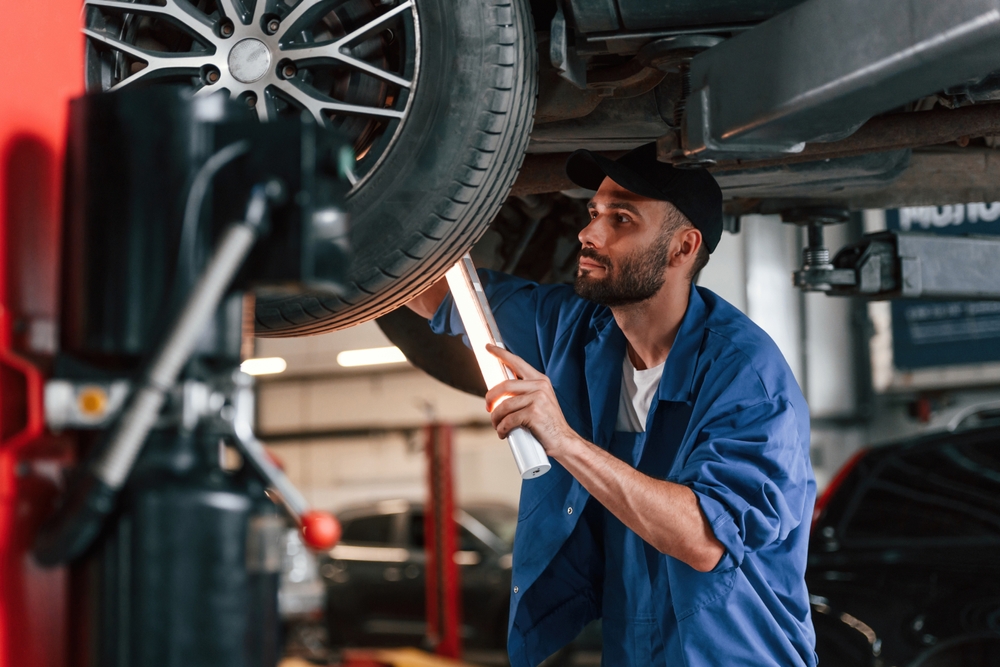
Most drivers want to save money on car repairs, but few realize the real cost of cheap auto parts. Mechanics see the same story play out every day: someone chooses a bargain part, hoping to cut expenses, only to face headaches and bigger bills later. Cheap parts can seem like a smart move at first glance, but there are hidden risks that most drivers overlook. Understanding what mechanics know about cheap parts could save you time, money, and a lot of stress. If you drive regularly, knowing the truth about cheap auto parts is essential for your car’s health and your wallet.
1. Cheap Parts Rarely Last as Long
One of the biggest secrets mechanics know about cheap parts is that they almost never last as long as higher-quality ones. While the price tag is tempting, the materials and manufacturing methods used in cheap auto parts are often subpar. You might save a few bucks upfront, but you’ll probably be back in the shop sooner than you’d like. For example, budget brake pads may wear out twice as fast, leaving you with another repair bill in half the time. This cycle of replacing parts more often can end up costing more than just buying the right part the first time.
2. Fit and Compatibility Issues
Cheap auto parts are notorious for not fitting properly. Mechanics often see drivers purchase low-cost parts online, only to discover that they don’t quite match their vehicle’s specifications. An ill-fitting part can cause rattles, leaks, or even damage to other components. You might have to pay extra for adjustments or, worse, replace the part entirely. Mechanics often say that “universal fit” usually means “fits nothing well.” Saving money is great, but not when it means your car spends more time in the shop than on the road.
3. Safety Can Be Compromised
Few things matter more than safety when it comes to your car. Cheap auto parts sometimes fail to meet basic safety standards. Mechanics have seen brake pads crumble, suspension parts snap, and filters disintegrate—all because the owner went with the lowest price. Skimping on cost might put you and your passengers at risk, especially for critical components like brakes, tires, or steering parts. The money you save isn’t worth it if it puts your safety at risk.
4. Warranty Problems
Many drivers don’t realize that using cheap auto parts can void their car’s warranty, or at least complicate future claims. Mechanics hear from frustrated customers who learn too late that a low-cost part isn’t covered, or worse, that it has caused collateral damage that the manufacturer won’t fix. Reputable garages often refuse to install bargain-basement parts for this reason. They know that when a cheap part fails, the hassle—and sometimes the blame—falls on them. If you want peace of mind, it’s wise to stick with parts that meet your vehicle’s standards.
5. False Savings Add Up
It’s easy to focus on the immediate savings of cheap auto parts, but mechanics see the bigger picture. A $30 part that fails after a few months leads to more labor costs, more downtime, and sometimes even costly repairs to other systems. For example, a cheap water pump could break and overheat your engine, causing thousands of dollars in damage. Mechanics know that spending a little more up front often prevents much larger expenses down the road. The “cheap” route can quietly drain your finances over time.
6. Reputation of the Brand Matters
Mechanics rely on experience to know which brands are reliable. Cheap auto parts from unknown or generic brands rarely perform as well as established ones. There’s a reason some brands are trusted in the industry—they consistently deliver quality and reliability. Mechanics often recommend sticking with brands that have a track record and offer solid warranties. A reputable brand may cost a bit more, but it can save you headaches and money in the long run.
7. Environmental Impact
Cheap auto parts often come from factories with lower environmental standards. These parts may be made with harmful materials or in ways that pollute more. Mechanics point out that low-quality parts also end up in landfills faster because they fail sooner. Choosing quality parts can be a small way to reduce your car’s environmental footprint. If sustainability matters to you, it’s worth asking where your parts come from and how they’re made.
Making Smart Choices About Cheap Auto Parts
Mechanics have seen it all, and their advice is clear: think twice before choosing cheap auto parts. While saving money matters, the long-term risks—shorter lifespan, poor fit, safety issues, and hidden costs—can quickly outweigh the initial bargain. Cheap auto parts may seem like a good deal today, but they rarely pay off in the long run.
Before you buy, ask your mechanic for their recommendation or conduct some research on the part’s reputation. In many cases, paying a bit more for a high-quality part means fewer problems, improved safety, and longer intervals between repairs. The next time a cheap auto part tempts you, remember what mechanics know—it could save you far more than just money.
Have you ever had a bad experience with cheap auto parts? Share your story or ask a question in the comments below!
What to Read Next…
- 5 Hidden Dangers Of Cheap Auto Repairs You Need To Know
- 10 Things Your Mechanic Can Legally Do Without Telling You
- 9 Car Brands Losing Trust With Mechanics
- 7 Car Models That Mechanics Avoid Even When Theyre Discounted
- 10 Car Features That Make Mechanics Rich
The post What Mechanics Know About Cheap Parts That Drivers Refuse to Believe appeared first on Clever Dude Personal Finance & Money.







